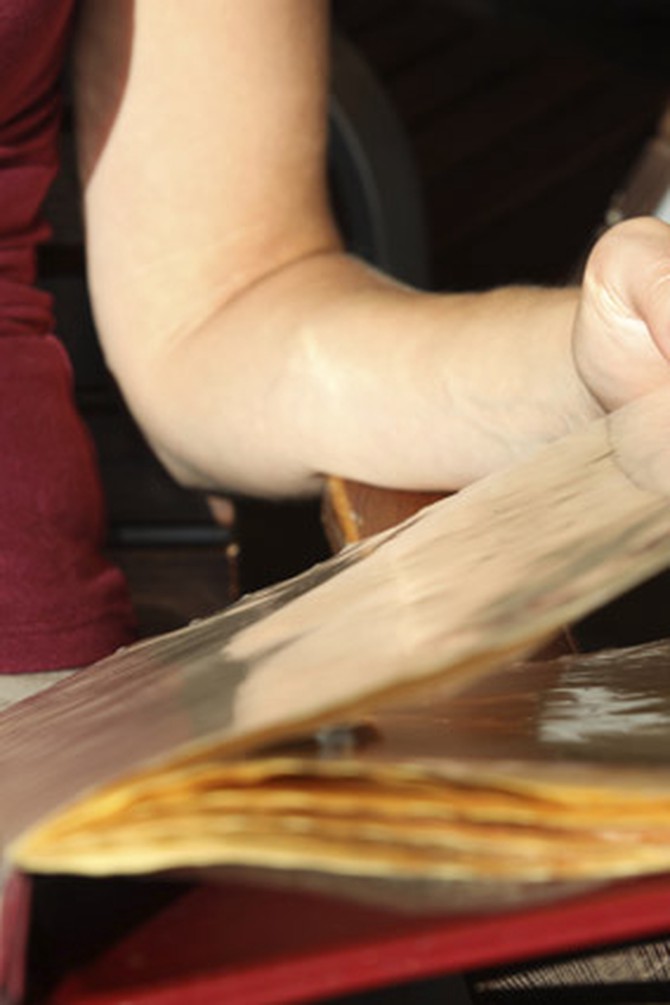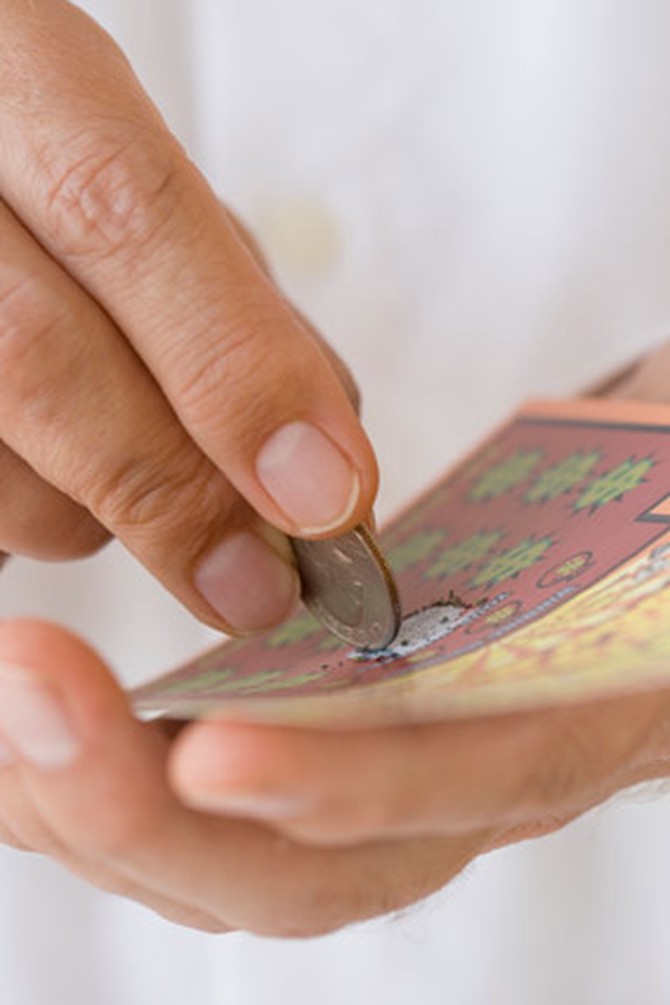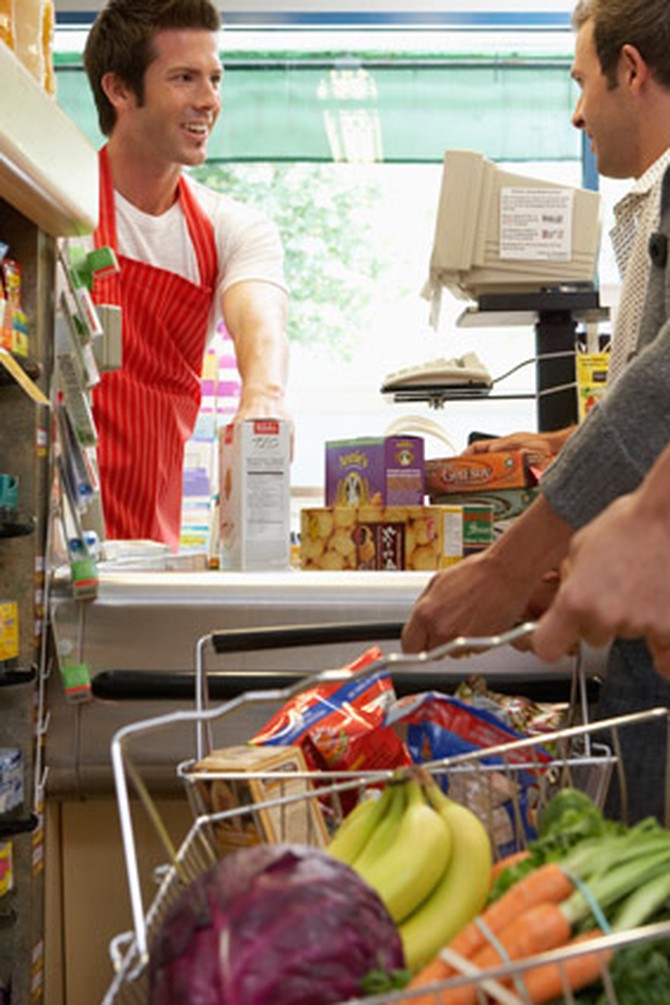Bad Money Habits You Can Fix by April 1
You probably don't even realize you're practicing these behaviors—but here's how to stop (and save).
By Lynn Andriani

Photo: Thinkstock
Graciously Accepting a Complimentary Cup of Green Tea While You Shop for Eye Cream
Why it's bad: Sipping a hot beverage may make you more likely to splurge on a miracle potion. New data from the Journal of Consumer Psychology shows that, when considering a product, we tend to value it more when we simultaneously experience a sensation of warmth. That's because "sensory warmth" increases our feelings of "emotional warmth"—and retailers know that soft and toasty feelings can translate to easy-breezy spending.
How to stop: If a salesperson at the yoga boutique or the high-end beauty shop offers you a cup of herbal tea, politely decline...until you're leaving the store.
How to stop: If a salesperson at the yoga boutique or the high-end beauty shop offers you a cup of herbal tea, politely decline...until you're leaving the store.

Photo: Thinkstock
Purposely Avoiding the Most Expensive Item on the Menu—and Ordering Whatever's Right Below It
Why it's bad: Even if you consider yourself savvy about menu engineering, beware of this tactic we learned about from O magazine contributor Peter Greenberg: Restaurants often list their priciest dish on the right side of the menu, in the center, where they know you'll look first. They're counting on you to see this "decoy" (some insiders also refer to it as an "anchor"), and then opt for the more moderately priced item below it—which, in many cases, is the dish with the highest profit margin for the restaurant (such as an overpriced pasta that's been spruced up with odds-and-ends vegetables).
How to stop: Start at the back of the menu (if there is one—if not, look toward the bottom or, even more precisely, at the bottom left). Those dishes are usually better values, and if you see them first, you'll be less tempted to go for the more expensive dish you notice later.
How to stop: Start at the back of the menu (if there is one—if not, look toward the bottom or, even more precisely, at the bottom left). Those dishes are usually better values, and if you see them first, you'll be less tempted to go for the more expensive dish you notice later.

Photo: Thinkstock
Impulse Clicking
Why it's bad: You have no problem resisting cheap items near the register in physical stores; but on the internet, it's a different story: In a recent LivePerson survey, half of the 6,000 online shoppers interviewed admitted they fall prey to impulse buys.
How to stop: When financial planner Michael Kitces is trying to help his clients spend less, he has them set up tripwires, such as those that prevent sites from saving your credit card information, clear your browsing history or disable "one-click buy" options. Finally, if there are shopping sites you frequent, try installing a time-delay script, such as this one. It'll essentially black out the website for 30 seconds before you can see it, thus stalling—and possibly curbing—your spending.
How to stop: When financial planner Michael Kitces is trying to help his clients spend less, he has them set up tripwires, such as those that prevent sites from saving your credit card information, clear your browsing history or disable "one-click buy" options. Finally, if there are shopping sites you frequent, try installing a time-delay script, such as this one. It'll essentially black out the website for 30 seconds before you can see it, thus stalling—and possibly curbing—your spending.

Photo: Thinkstock
Buying a Lotto Ticket Whenever There's a Gajillion-Dollar Jackpot
Why it's bad: You know why it's bad. Lotteries offer the worst odds in legal gambling, yet Americans still spend an average $540 per household on lottery tickets every year. (That's about $100 more than they spend on milk or beer.)
How to stop: The current Mega Millions jackpot is $107 million; and your odds of winning are 1 in 258 million. That's worse than your odds of becoming a saint (about 1 in 20 million). Why not go with the safer bet?
How to stop: The current Mega Millions jackpot is $107 million; and your odds of winning are 1 in 258 million. That's worse than your odds of becoming a saint (about 1 in 20 million). Why not go with the safer bet?

Photo: Thinkstock
Grocery Shopping on Your Lunch Break
Why it's bad: There are rarely deals to be had on quiet Mondays, Tuesdays, Wednesdays and Thursdays. Retailers know that most people shop on weekends, so that's when they offer big discounts, says Roger Davidson, who has held senior positions with major grocery chains.
How to stop: Brave the masses on Friday, Saturday or Sunday to find major markdowns. Another reason not to fear crowds: Research shows we're less likely to buy unnecessary items when we're surrounded by many people.
Next: 5 ways you're wasting money trying to save time
How to stop: Brave the masses on Friday, Saturday or Sunday to find major markdowns. Another reason not to fear crowds: Research shows we're less likely to buy unnecessary items when we're surrounded by many people.
Next: 5 ways you're wasting money trying to save time
Published 02/26/2014

